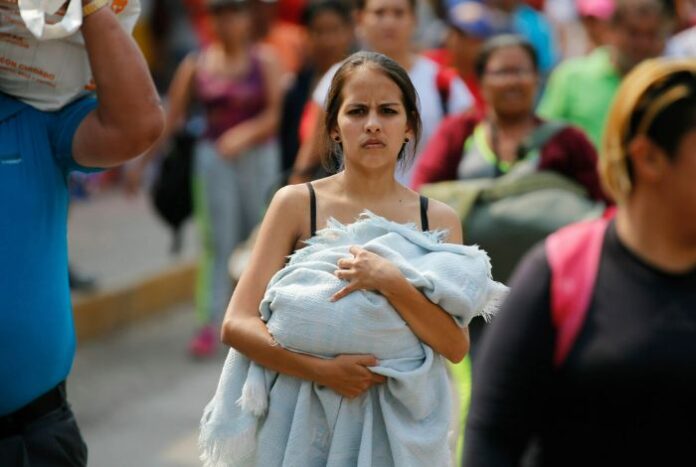According to a report from the nongovernmental organization Una Ventana a la Libertad (A Window to Freedom, UVL), health problems were the main cause of deaths among inmates during the period, followed by alleged executions during recapture operations of runaways from Preventive Detention Centers
During the first semester of this year, 118 inmates died in 273 preventive detention centers monitored by Una Ventana a la Libertad in 19 states of the country.
In the first semester of 2020, UVL confirmed the death of 65 detainees due to health problems – the first cause of death – raising the alarms in the face of the resurgence of Covid-19 in the country; tuberculosis was the main cause in 36 cases (55.4 percent of all deaths ) while respiratory problems accounted for 11 deaths (16.9 percent), which implies that 72.3 percent of deaths from diseases were due to these two causes. In third place, seven cases of malnutrition were documented, accounting for 10.8 percent of all deaths.
A relevant fact is that the second cause of death among inmates in Preventive Detention Centers during the period of study was police action during jailbreaks, responsible for 34.7 percent of all deaths. This is evidence of the violence displayed by custody officials and sometimes the National Guard who may be guarding the exterior of the centers or be called on whenever a jailbreak occurs.
Of the 273 cells monitored by the organization, 185 (67.8 percent) reported the presence of inmates with infectious and contagious diseases. 56.3 percent of the reported diseases affect the respiratory system and the skin, such as scabies; 24.7 of the inmates suffer from malnutrition and 19 percent from tuberculosis. A total of 2,091 patients are locked up in the monitored centers, without precautions to avoid contamination between them. This situation will clearly continue to worsen due to the particular risk that undernourished people have of contracting any disease such as infections or viruses.
In the daily reports, our researchers focused on the most important issues such as jailbreaks, riots, strikes, injuries, deaths, general health situation, food, and the general quality of life of detained women and men. Overcrowding, infectious diseases, and malnutrition are now more visible as elements of high health risk due to the presence of the pandemic. Likewise, violent control measures and repression. Also, the organization expanded its reporting on the protests held by the detainees, which now seem to be more linked to health and nutrition problems and the delay in due process.
This first half of 2020 has been quite complex and UVL has kept up. We can say the studied period had two phases: the pre-pandemic phase in the first quarter, and a second quarter marked by the quarantine decreed by the Government of Nicolás Maduro, in force since March 14. We have compiled a report to cover those moments.
The report found that the Covid-19 pandemic hit the country at a time when the Preventive Detention Centers are highly overcrowded. By the end of the first half of 2020, 4,341 people were detained in those facilities, built to house only 1,040. In other words, during the months when the quarantine was in effect, the number of detainees almost quintupled the capacity. But most importantly, the physical distancing of not less than one meter between each other, which is the fundamental preventive measure against contagion, is impossible to observe in the cells.
Throughout the report, the organization analyzed the information, taking as a central axis the relation between the health of the detained persons and each of the monitoring indicators. The report concluded that the living conditions inside all Preventive Detention Centers are so inadequate that they constitute a breeding ground for the Covid-19 pandemic, with the risk of becoming a pandemic within a pandemic.
You can read the Spanish language version of the Report on the Human Rights of Men and Women Deprived of Liberty in Preventive Detention Centers of Venezuela during the first half of 2020 HERE.
Translated by: José Rafael Medina




